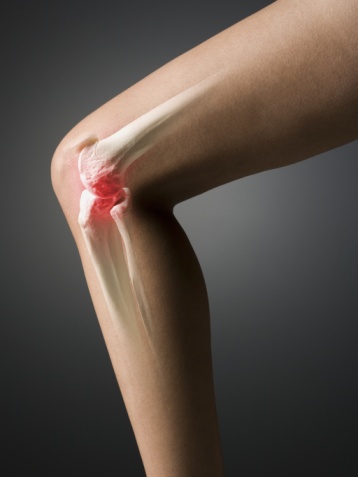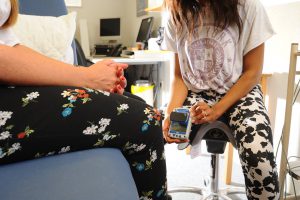
April 25, 2019, by bmillar
KNEE OSTEOARTHRITIS AND WEB-BASED EXERCISES
“Helping research is not only about helping yourself but about helping the generations to come. And it does not stop there, as the research, in which you helped, may facilitate or initiate many other studies. It is like a chain reaction and credit go to all the volunteers helping with these studies.”
Sameer Gohir
A World Online
We live in a world where we can pick our phone and on a click of a button, we can order milk the next day. We can order a new book or food to be delivered same evening via online shopping portals. And in many modern houses, we can switch off the light of the top floor bedroom while we are sitting in our living by using an app. This is all due to the fascination of the internet, linking our desires and ideas to practical solutions and using a medium like ‘internet’.
We are not far from the time, where we can request treatment options for a certain condition online. In fact, most of us use online platforms to search for different medical conditions, with many in quest of online sources for self-diagnosis or to diagnose someone else and in some cases, to improve our knowledge on specific condition or disease. People living with chronic diseases are very likely to pursue peer-to-peer social media sites for support.
Health care providers have acknowledged and responded to the fact that individuals rely on Internet sources and social media for health information and to make health care decisions. Hence, the usage of social media among health care providers has risen over the past few years. It is now normal for your local gym, your local running club and your local hospital to be on Facebook, Instagram and Twitter to be sharing their wisdom with you and keeping you motivated.
Web-Based Exercises
Considering all these innovations, the University of Nottingham is studying the benefits of online exercises on the participants who are living with painful knee osteoarthritis. The purpose of this study is to test a web-based exercise intervention to reduce osteoarthritis pain, and in addition, to try and determine the effect of exercises on the level of pain which one routinely experience and on the quality of sleep. We anticipate that these exercises will reduce pain levels and improve sleeping habits, thus potentially reducing the progression of osteoarthritis. If this study proves that these exercises are effective, then our recommendations will be to offer these exercises as routine management to patients suffering from knee osteoarthritis.
Individuals with mild to severe knee pain are being invited to participate in the study to allow us to compare different categories of knee pain and to identify features such as their sleep patterns or some biochemical markers in their blood that may help explain the differences in pain severity between individuals.

What does the study involve?
The Nottingham Biomedical Research Centre is inviting people affected with painful knee osteoarthritis to take part in the study. The study that we are asking you to join is looking at the benefits of internet-based exercises on pain, quality of sleep, strength of muscles around your knees and overall quality of life. On a random basis, you will be allocated to either an exercise group or a control group. Regardless of the group that you are assigned to you will be invited to take part in two hospital visits planned over the period of 6-8 weeks apart. A range of assessments will be undertaken at an initial hospital appointment and will then be repeated approximately six to eight weeks later.
Both groups will go through the assessment, however, there will be no exercises recommended for the control group, and you will follow the plan or exercises given by your GP or instructions recommended by Versus Arthritis.
If you are allocated to the exercises group you will get login details via e-mail so that you can enrol in the online knee exercise academy (the Joint Academy) and start doing the exercises for your knee pain. You will be asked to complete background information online, following which a tailored exercise and the educational programme will be created for you. You will then be expected to log in daily and complete that day’s activity, which will be designed to take 5 – 30 minutes a day. The study team will be available to help should you experience any problems with the programme.
What does Dr Ana Valdes (Chief investigator) say about the research?

“This is the first study that will investigate the relationship between osteoarthritis pain relief due to exercise and improvements in sleep and the brain-networks related to pain. In addition to showing the effectiveness of physiotherapy designed exercises delivered via an App to treat knee osteoarthritis, this study will also shed light on important scientific and medical aspects of pain and pain relief.”
Chief Investigator:
Dr Ana Valdes, Associate Professor and Reader in Musculoskeletal Genetics
Other investigators:
Professor Paul Greenhaff, Dr Abhishek Abhishek, Dr Michelle Hall, Sameer Gohir
Research Co-ordinator:
For further information please contact msk-recruitment@nottingham.ac.uk or 0115 8231676
No comments yet, fill out a comment to be the first

Leave a Reply